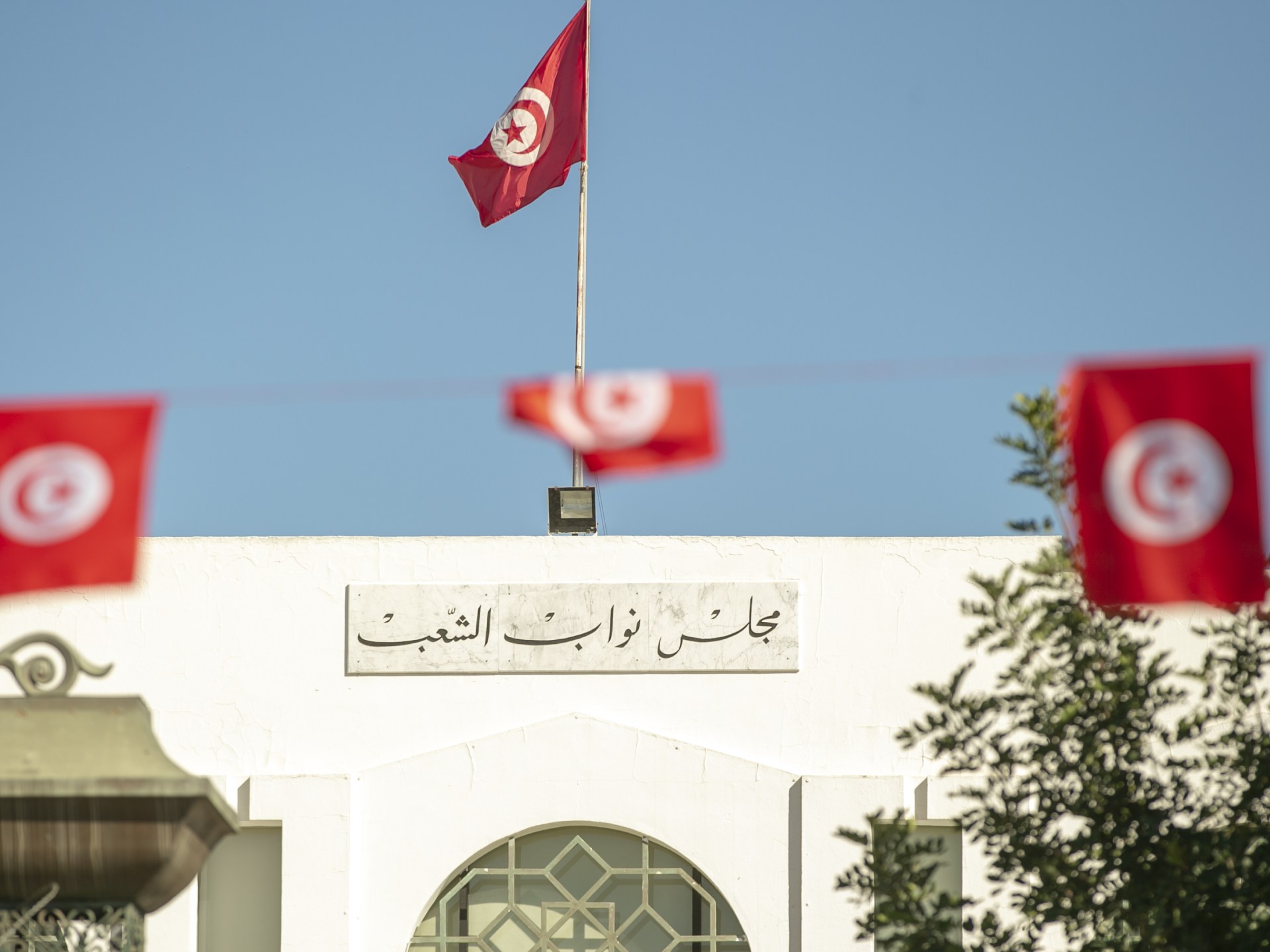Representatives of the new parliament in Tunisia chose Ibrahim Bouderbala as Speaker of the Parliament, by a majority of votes, ahead of his rival Abdel Salam Dahmani.
The Tunisian parliament held its inaugural session on Monday amid protests among journalists after they were prevented from entering the parliament's headquarters to cover the session, while the opposition refused to recognize the parliament, describing it as "the fruit of the coup constitution."
After the start of the session at the parliament headquarters in the Bardo district of the Tunisian capital, the deputies took the oath, then elected Ibrahim Bouderbala, 71, as speaker of the Assembly of the Representatives of the People. Two members of the parliament, one of them a woman, were elected as his assistants.
The media coverage of the parliament's work was limited to government media outlets only, and the rest of the media was not allowed to cover the event.
Tunisian President Kais Saied said, in a meeting with local officials in the Ghar al-Dama region in northern Tunisia, that the legislators who have begun their work in the House of Representatives must put in place legislation appropriate to the will of the people, and not forget that the people may withdraw the mandate from them after a year if they do not abide by their promises to their voters, according to Saying it.
Saeed stressed that those who consider themselves an extension of a party, organization or group will be held accountable, because public utilities are based on the principle of neutrality.
Ibrahim Bouderbala, the new speaker of the Tunisian Parliament (Al-Jazeera)
Targeting freedom of the press
The Tunisian Journalists Syndicate said that preventing journalists from entering parliament is a dangerous precedent and a confiscation of a right guaranteed by the constitution.
The Syndicate added that the ban is a systematic policy adopted by the authority to target and restrict freedom of the press and undermine the citizen's right to information, according to its expression. The Syndicate called on all members of the Assembly of the Representatives of the People to assume their responsibilities and stand up to the prevention process.
The Tunisian Association of Newspaper Directors also considered preventing journalists from covering the parliament session as an unjustified exclusionary practice against freedom of expression.
Tunisian journalists from various local and foreign media protested in front of the Parliament headquarters against the background of being prevented from covering the work of the opening session of Parliament, with the exception of state television and the Tunisian News Agency.
The Tunisian Journalists Syndicate considered that preventing journalists from entering parliament is a confiscation of a right guaranteed by the constitution (Anatolia)
The opposition refuses to acknowledge
On the other hand, the opposition National Salvation Front announced that it would not recognize the parliament emanating from the constitution of an illegal coup and elections that were boycotted by the overwhelming majority, according to the statement, stressing its adherence to the 2014 constitution approved by millions of Tunisians through their deputies in the National Constituent Assembly.
The authority added, in a statement, that the dissolution of the municipal councils is a new episode in the series of coup measures that established the president's control of all powers, according to the statement.
The Ennahda bloc in the dissolved Tunisian parliament also expressed its lack of recognition of the new parliament and its adherence to the 2014 constitution as the sole source of legitimacy.
In a statement, the bloc renewed its rejection of what it described as unilateral decisions taken by the de facto authority.
All organizations called for more peaceful struggle for the return of legitimacy, and also called for early presidential and legislative elections.
In a statement, the presidency of the dissolved parliament rejected what it called the "coup path" and considered "the pseudo-parliament devoid of any legitimacy or legitimacy, and it is not possible to take any decisions issued by it or dictates passed through it by the coup authority," according to the expression of the statement.
In July 2022, a new constitution was approved following a popular referendum, which included limited powers for parliament, in return for the president enjoying the majority of powers, and 30.5% of the voters participated in it.
On February 25, the Independent High Authority for Elections announced the final list of 154 new members of parliament.
The election of members of the new parliament represents the last stations within the road map announced by President Kais Saied, which included electronic consultation, a popular referendum on a new constitution, and the organization of early legislative elections.
Tunisia has been experiencing an acute political crisis between the president and his opponents since the announcement of exceptional measures on July 25, 2021, according to which the previous parliament was dissolved, the Judicial Council was also dissolved, and legislation was issued by presidential decrees.

